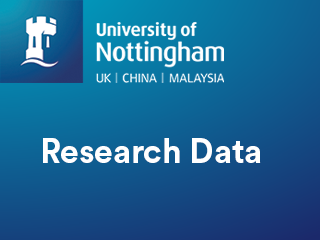Religiosity, Wellbeing, and Perception of Interreligious Threats
| dc.contributor.author | Lam, Dorcas | |
| dc.contributor.other | Koh, Kai Seng | |
| dc.contributor.other | Gan, Wendy Siew Wei | |
| dc.contributor.other | Sow, Jacob Tian You | |
| dc.coverage.spatial | Malaysia | en_UK |
| dc.date.accessioned | 2022-12-20T13:26:53Z | |
| dc.date.available | 2022-12-20T13:26:53Z | |
| dc.date.issued | 2023-01-01 | |
| dc.identifier.uri | https://rdmc.nottingham.ac.uk/handle/internal/10051 | |
| dc.description.abstract | The onset of the COVID-19 pandemic and extended periods of lockdown worldwide have contributed to rising mental health issues, particularly among young adults. While there are many factors that contribute to one’s mental health, studies have also shown an ambivalent relationship between religiosity / spirituality and mental health, with religion often being used as a coping mechanism. Data is collected for this study with the aim to describe the relationship between religion and psychological wellbeing in the religiously diverse landscape of Malaysia by measuring the following elements: religiosity, religious emotions, interreligious perceptions of threats and discrimination, subjective wellbeing, and social-psychological wellbeing. | en_UK |
| dc.language.iso | en | en_UK |
| dc.publisher | The University of Nottingham | en_UK |
| dc.rights | CC-BY | * |
| dc.rights.uri | https://creativecommons.org/licenses/by/4.0/ | * |
| dc.subject.lcsh | Psychology and religion -- Malaysia | en_UK |
| dc.subject.lcsh | Spirituality -- Psychological aspects | en_UK |
| dc.subject.lcsh | Mental health -- Malaysia | en_UK |
| dc.subject.lcsh | Well-being -- Malaysia | en_UK |
| dc.title | Religiosity, Wellbeing, and Perception of Interreligious Threats | en_UK |
| dc.identifier.doi | http://doi.org/10.17639/nott.7264 | |
| dc.subject.free | religiosity, wellbeing, threat, discrimination | en_UK |
| dc.subject.jacs | Social Studies::Sociology::Religion in society | en_UK |
| dc.subject.lc | B Philosophy. Psychology. Religion::BF Psychology | en_UK |
| dc.date.collection | March to July 2022 | en_UK |
| uon.division | University of Nottingham, Malaysia Campus | en_UK |
| uon.funder.controlled | None | en_UK |
| uon.datatype | Questionnaires | en_UK |
| uon.collectionmethod | Questionnaire administered via Qualtrics and includes the following psychometric instruments: Centrality of Religiosity Scale (CRS-20), inventory of Emotions towards God, Satisfaction with Life Scale, Flourishing Scale, and two questionnaires that we adapted to measure perceptions of interreligious threat and discrimination. | en_UK |
| uon.institutes-centres | University of Nottingham, Malaysia Campus | en_UK |
| uon.preservation.rarelyaccessed | true |
Files in this item
This item appears in the following Collection(s)
-
Public Research Data
A collection of research data, held in this repository, that is publicly available, except where individual embargoes apply


